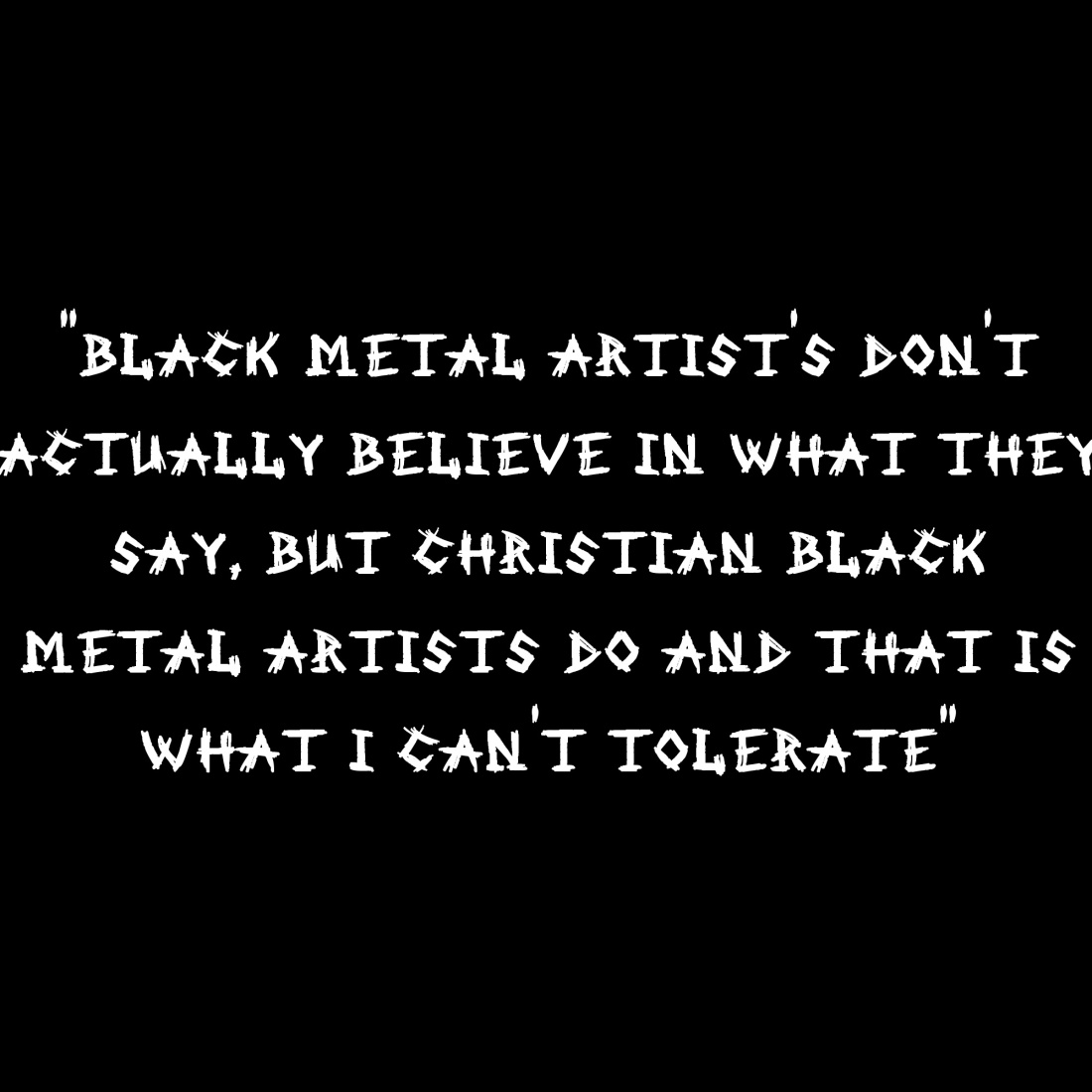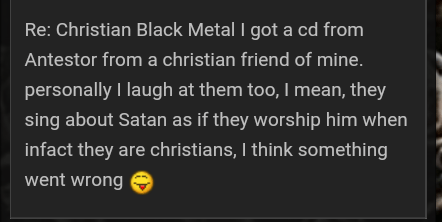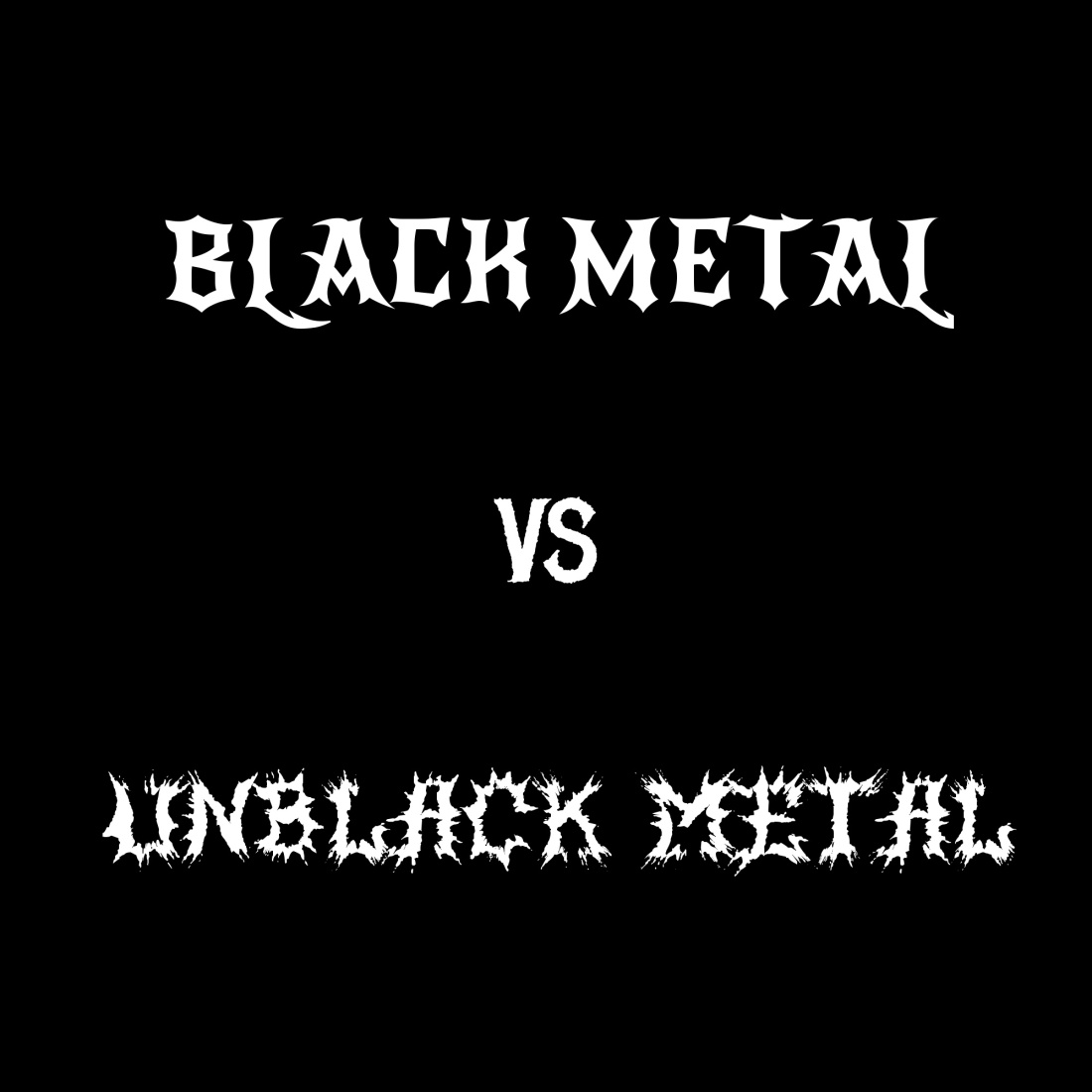
Secular versus Theistic
1. Introduction
For hundreds of years there has been a battle between the secular world and the religious world, it began under Napoléon Bonaparte of France that the term secular was used. It was back then used to describe the government, especially when the government took over land that was owned by the church. These days secular simply describes those who lack religion. When it comes to the topic of metal, it is safe to say that there is a big secular presence in the genre as a whole. Other genres thrive off of a secular view, yet metal is conflicted with many views. It’s because although metal has its fair share of secular musicians, it has a high number in musicians at least claiming some or other religion. Even Satanism is a religion, that defies the basic secular principles but at the the same time a lot of secular people can even be involved in Satanic bands. When it comes to organised religion, the official Satanic church are openly atheistic – however ironic that may be. Although there are various kinds of sects in the Satanic church, some comparable to that of Scientology that are money based faiths and others that are built mainly around the aspect of criticising Christianity. Most however still lay within the realm of an atheistic fundamental premise. Despite this, black metal artists who are Satanic hardly seem to divulge the same information as the Satanic church. So where does secular meet theism in black metal?

2. It’s All For Show
Frequently metal fans can be cited saying how musicians do things for show, because how could they really believe in these religious ideals? As well as more extreme views, that the artists are not even representing the views they claim to believe. This is most commonly said about Satanic bands or bands that discuss lyrical topics such as murder. One can easily see a fan refute a claim that bands would actually commit murder. The most common example would be with a death metal band like Deicide, where the frontman gave his word he would kill himself reaching the same age as when Jesus was crucified and that this would somehow make him the exact opposite of Jesus. Needless to say, he did not kill himself and so the discussion is built that really a lot of Satanic artists do it for show. That this is all a part of the image and has no deeper meaning. For some acts this may be true, that to these people it is nothing more than showmanship and they don’t believe in any kind of deity or faith. A lot of these musicians may not even be atheists, some are just people who haven’t really considered what they believe – so their outlook is to not really believe anything without holding to a label. This can still safely be considered as a secular worldview.
This leads to a lot of doubt behind the genuine faith that Satanic musicians in the genre really hold in their words. Which as far as some consider to be the rules of conformity for true black metal ideology, should be considered a contradiction. However, as established before in the previous article, there is no black metal ideology – there is only the black metal genre. This just goes further to prove that a lot of the religious acts within black metal become questionable at their authenticity to uphold their faith. This has happened in more than just the Satanic sphere of things, as there have been confirmable bands who have used Christianity for show too. The South Korean black metal act Malakh was one band that openly said words to the effect of that Christianity is used as a part of the image of the band rather than actually believing in Christianity. A lot of secular listeners of black metal with Christian artists are at times convinced that the Christian bands use their religion the same way as some Satanists. Above you would have noticed a listener convinced that Antestor uses the same lyrical content as Satanic bands. It’s not uncommon to find non-Christians listeners convinced that either Christian black metal bands sing about Satan or are not actual Christians, but are simply for show. Whether or not a band is for show and tell though entirely boils down to said band. For any avid listener of Antestor though it is not a general quandary whether or not the band is faking their Christianity. Antestor clearly uses Christian lyrics and not Satanic lyrics, also claim their Christianity outside of the band rather than just in it.
3. When It’s Not For Show
What about all the artists who are not faking their beliefs? The artists both Christian and Satanic that mean what they say and do it too? These bands do in fact exist. A large majority of the Christian scene of bands tend to be authentically Christian, although there may be disagreements on what true Christianity is or whether or not a band may have covered all fundamentals. The main point being a large majority of Christian bands in the black metal scene are not showman, they actually are theists. On the specifics of Christianity in black metal, those will be covered in a later article. For now the focus will continue on bands of a genuine faith of some kind. A band that is confirmed as being truly Satanic is harder to come by then one would think. For instance, a lot of Satanic bands have a criterion of unspoken rules they have to reach in the black metal world to please fans. They must have the image down, they must have lyrics about Satan and then they must claim to be Satanists. Yet, none of these unspoken rules honestly govern what a true Satanist is – so let’s put forward the basic fundamental of any religion. In Christianity if you believe Jesus is the only God, you’ve got the basic first part down; in Islam if you believe that Allah is the only God, you’re stepping toward being a genuine Muslim, in Atheism if you believe there are absolutely no gods or God of any kind, you’ve established the main understanding of Atheism.
So to be a Satanist, you have to believe in an actual Satan. This is where simply writing Satanic lyrics is not enough, acting like you believe in an actual Satan is too not enough. Just like other religions, it cannot be an act. This is perhaps what Varg Vikerness or Kristian Vikerness discovered when he changed his faith to Odinism. That believing in Satan is also believing in the Bible, Satan does not come from another faith outside of the Judeo-Christian spectrum. Buddhists do not confess a specific being named Satan to exist. So then which Satanic bands can say they believe the Bible, since they believe in the existence of Satan? It’s a paradox that has little representation among black metal bands who are Satanic. However, for Pagan bands it is less doubtful that they can truly uphold their religious beliefs whilst participating in the black metal scene. If a Pagan truly believes in their deity or deities, they’ve reached their first step of faith like other religions. This doesn’t mean it is impossible for a Satanist to actually believe in Satan, it does mean though that they will have to concede that Satan is from the Bible. All the Satanists who want to burn the Bible instead of be well read in Scripture like Satan is shown to be in the Bible, are perhaps less learned on the character of Satan. The authentic Satanist would have to know more than three verses in the Bible by heart.
4. The Catholic Influence On Black Metal
Although black metal can not be a religion of its own and has no true ideology, it has attracted many religions and a host of bands have been influenced – some without even knowing. Catholicism has its differences with Christianity, particularly Protestantism. After Martin Luther’s start of the Protestant reformation, not all that is Catholic has since been considered Christian – as there are some stark differences. Yet there are still parts of Catholicism that are Christian enough to convert an Atheist to Protestant Christianity. Modern era Catholicism doesn’t do justice to what it once was, even during the papacy of the reformation. However, there have still been Catholics who draw closer to the old Catechisms of the faith despite who may be pope now. John Ronald Reuel Tolkien was a devout Catholic, one who even managed to help Clive Staples Lewis convert to Christianity in the Protestant form. John Tolkien would have probably preferred it if Clive Lewis had become a Catholic instead, but he’d probably be more shocked at how many black metal bands he has influenced. It’s almost a guarantee that choosing any name from Tolkien’s Middle Earth fictions and typing them in to look up a band will lead you to a black metal band. Again Tolkien’s influence on black metal is something that has been noted by musicians, even to mention Varg Vikerness twice, Tolkien’s influence is obvious. The current response at least from Vikerness is that although there are elements of Judeo-Christianity in Tolkien’s books, there seem to be elements of Paganism in them too. Either way this is another point of irony for so many bands that take their names and even song inspirations from Tolkien to write “trve Satanic black metal” when Tolkien ultimately does write from the paradigm of a Catholic. What the particulars are of Tolkien’s Catholicism could be up for debate, but there are a collection of open letters between him and an assortment of religious questions asked by the Catholic Church or at least a priest thereof. These questions are all aimed at the Catholic understanding of things, where Tolkien’s intention in answering is to remain within the Catholic side of things than another faith.
5. Conclusion
Today there is a wide spectrum of bands in the black metal genre, from all kinds of religious beliefs to various non-religious philosophies. Despite all this, it’s clear that the Satanic stance is as thought out as Venom’s song “Black Metal” which says “Lay down your soul to the gods rock `n’ roll” and not Satan – only to find out Venom says later “rock n roll is dead” in the song “The Death of Rock n Roll.” Perhaps the only Satanists who are serious about their faith are the Satanists that left their belief to become something else, because the motivation of most simply revolves around Christianity.

